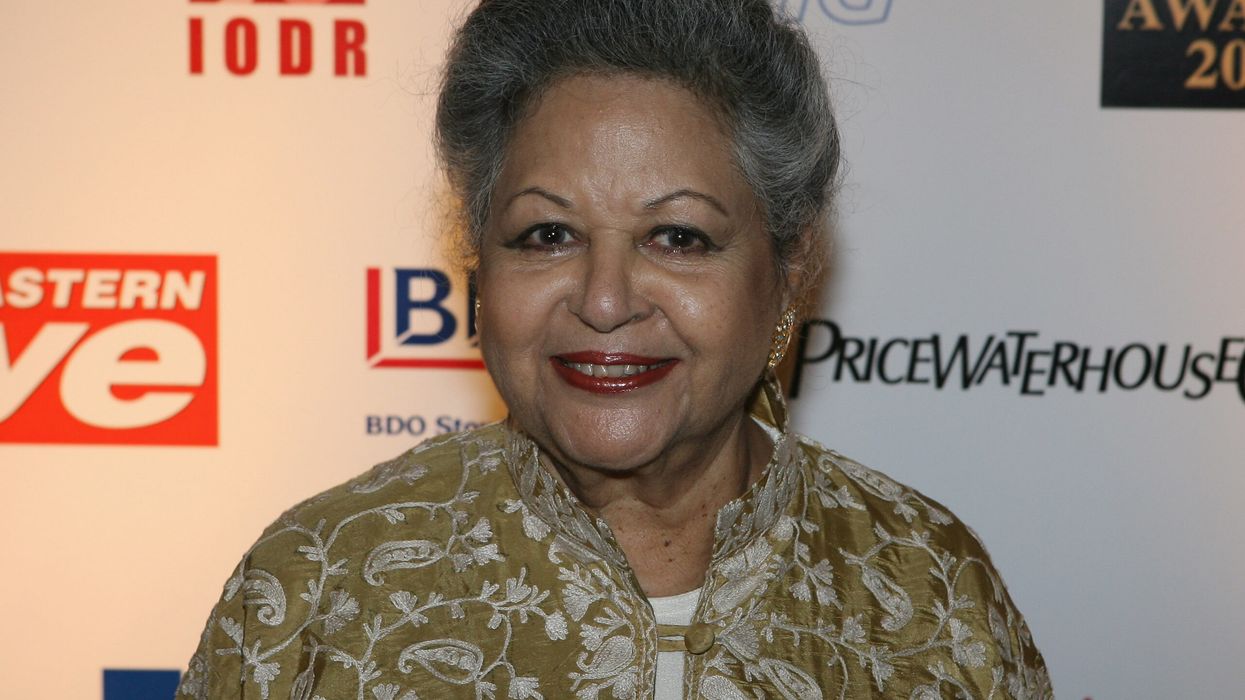LADY SHREELA FLATHER, who has died, aged 89, came into her own when she entered the House of Lords in 1990, the first ethnic minority woman to be given a peerage.
Her passing last week was announced by the Lord Speaker, Lord McFall of Alcluith, who said: “My Lords, I regret to inform the House of the death of the noble Baroness, Lady Flather, on February 6. On behalf of the House, I extend our condolences to the noble Baroness’s family and friends.”
She will be missed because even those who were sometimes offended by her comments would recognise she spoke plainly, honestly and from the heart.
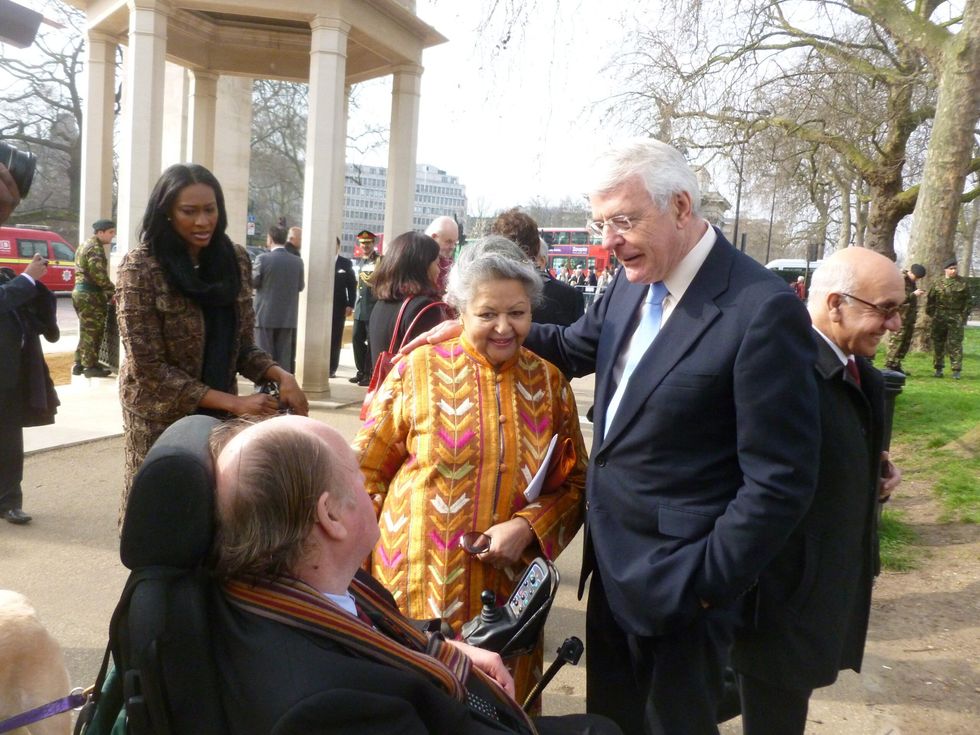
Perhaps someone will consider putting together a compilation of her speeches – some controversial – over more than 30 years. She began as a Tory, but eventually sat as a crossbencher. Issues close to her heart included the contribution of Indian soldiers in two world wars, and the need to free women from the shackles of society. Here is a random selection of her speeches in the House of Lords:
Commonwealth: June 30, 2022
Kashmir is a Muslim region, and it should definitely have gone to Pakistan; it has no business to be given to India, but it was not given to India either – it does not belong to anybody except itself. There is no end of problems with it, and they will not be resolved unless some definite action is taken. The UN said that we could have a plebiscite. We should have one. That would resolve the question of who it wants to be with. That is not for me to resolve, because I have no power to do anything. If I did, I would say, “Have a plebiscite.” The other thing we could do is try to increase the trade links, which we do not – we have a lot of army links, but no trade links, and that is not good, either. It is a very big mess and I do not know whether it can be resolved.
Assisted dying: October 22, 2021
I feel very strongly that the whole concept of assisted dying has been taken away by being mixed up with suicide. It is not about suicide, although I see no reason why one should not be allowed to commit suicide. It is your body and your life – if you want to take it, you take it. But we do not want that to happen, so we want to give people a choice, which is important.
It is also important that there is somewhere in this country similar to Dignitas. Whatever one says about Dignitas – there are many stories on television about individuals who have gone there having a bad time – it is simple, nice and straightforward.
Queen’s speech: January 8, 2020
I want your Lordships to think about political correctness because I think we have tied ourselves up in knots by giving in to it.
There are a number of issues. There are a lot of people in, say, Bradford who do not learn English. In many European countries, people have to learn the language if they want to get their benefits. We do no such thing because it is non-PC.
If people do not speak the language, they are deaf and dumb in this country; they do not know what is going on and have to rely on children or somebody who does speak English. It is completely and utterly wrong.
Another issue is first-cousin marriages. These marriages mean that the NHS has to take the burden of any child, from birth to death. We should not allow that to happen.
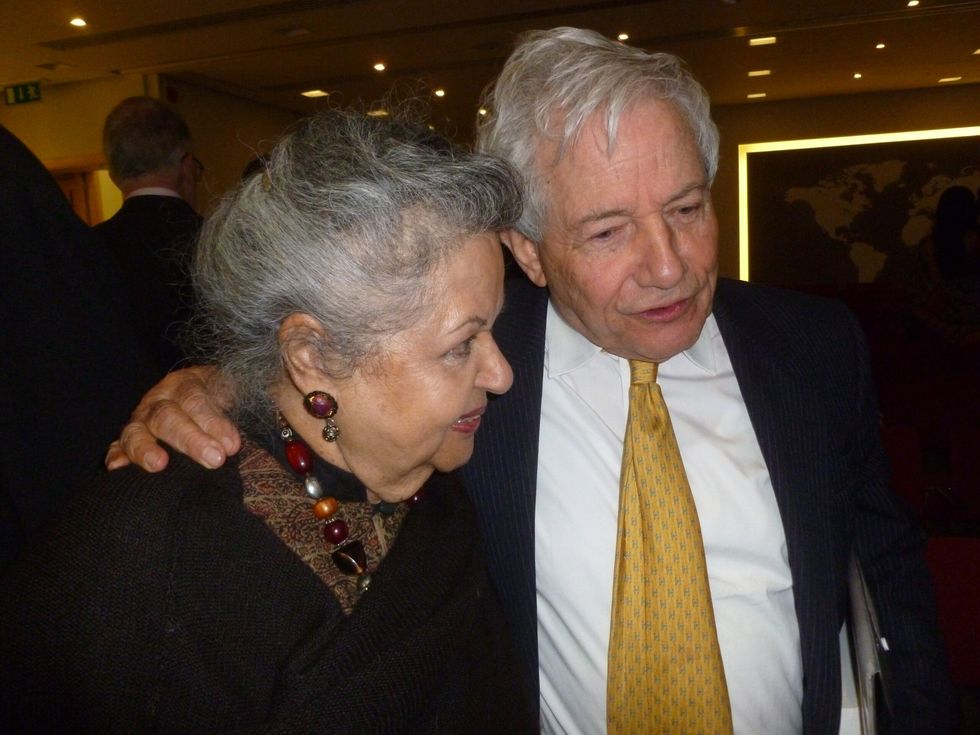
If there is a first-cousin marriage, there must be a DNA test, so that people will know how badly affected any child born will be. But no, we do not do that.
Religion: July 11, 2019
I was born in Lahore, which is now in Pakistan, but was then part of united India. I was born a Hindu, but grew up close to a family of Muslims; it felt like one big family. We never thought about religion.
My mother, who was a very old-fashioned Hindu, did not mind when I went to the imambara – they were Shia – the place of worship where the lady went. So I went with her and there was no question of, “Why are you going there, what are you doing?” It was a really amazing thing.
The other thing was that my great-grandfather was a very respected person in Lahore. Even now, people in Lahore call him ‘the father of Lahore’. So we had a wonderful life, but we became refugees after Pakistan happened, because Hindus really could not stay there, there was so much killing and so on, so we had to leave.
That is enough about me, except that when I learned about the Holocaust, I became a non-believer. I thought, if six million people, who prayed and were good people, had no response, I am not going to waste my time.
I have been thinking about all sorts of discrimination and the nasty things that happen to people. One of the worst things is faith to faith – the same faith and people being persecuted. We know about the Shia and the Sunnis, and coun - t r i e s t h a t are Shia and Sunni and ready to fight one another. That is faith to faith, which is also appalling.
Then there are also smaller groups of the faith who are treated like that. We have heard about the Ahmadiyyas, but noble Lords may not know – maybe I am not supposed to say – that the noble Lord, Lord Ahmad, is Ahmadiyya. Why is he here? Why is he sitting here as a minister? Because he is of the Ahmadiyya tradition, which believes in education and participation. It would be good if everyone who came here, especially Muslims, believed in that.
There is a real reluctance by the less educated Muslims to do anything to become any part of this country, and they never will. Some European countries have become much stricter; for example, Denmark says, “We will cut your benefits if you don’t learn Danish”. Everybody living in this country should be forced to learn English, because that is the only way they will participate in anything.
We are just so soft, we never say to anybody, “You must do this”. Why should women cover their faces? It is not in the Qu’ran, actually: the Qu’ran does not say you have to cover your face. A headscarf is fine, but we ought to be able to see people’s faces. We ought to stop this sort of thing, because we are going the wrong way round – the other way round.
Theatre: June 11, 2019
I must say that London theatre has very much been part of my life. I cannot imagine living without access to good theatre.
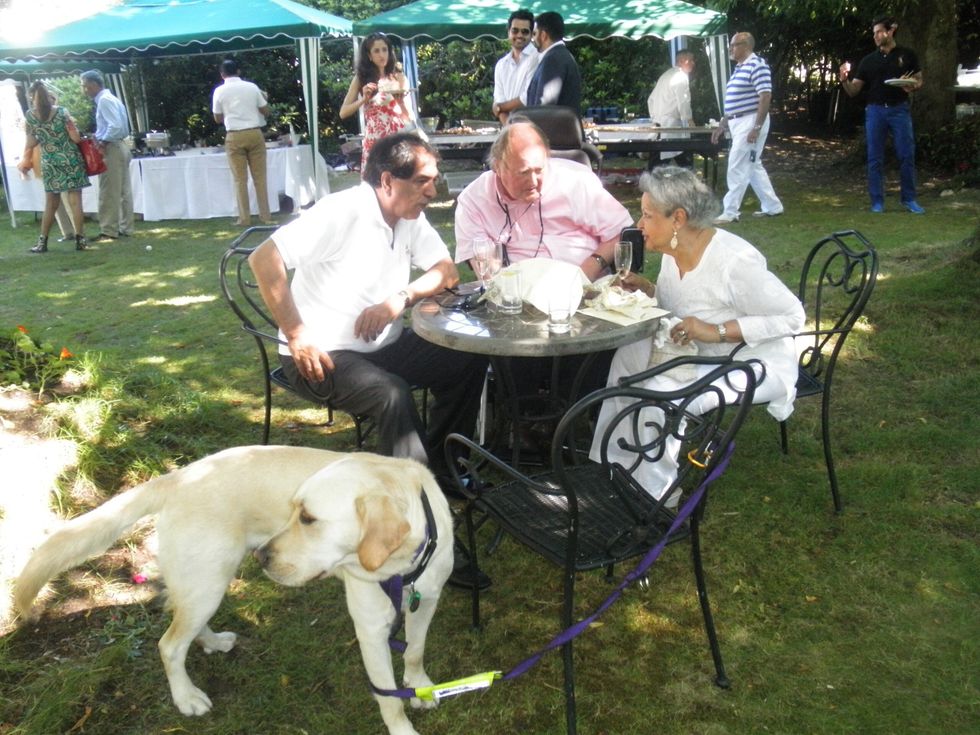
I feel extremely sad about how difficult it is for disabled people to get to most theatres.
Taking my husband to the theatre was a big event. I had to work out everything: how we were going to get there, how long beforehand we had to get there and how we were going to get in.
Just recently, I saw The Lehman Trilogy – the best of the best.
But my husband could not have gone to Piccadilly Theatre: there are so many stairs to go up and come down that it is impossible for a disabled person to go there.
Altogether, many things are not accessible to disabled people. This is important because they should be able to enjoy what we can enjoy. They should be able to go to things which we take for granted. I make a plea for people to think about disability and make provision for it.
Caste discrimination: July 15, 2015
My Lords, the Hindu community says that there is no caste discrimination in this country and therefore we do not need this subsection. Fine – but if that is the case, why is it fighting so hard against it? If there is no discrimination, then there is no discrimination. If this becomes law – it should, and the sooner the better – there will be no prosecutions, nothing will happen and it will die out. But because they are fighting so hard, it leads me to believe that there is discrimination.
Ethnic minorities: July 6, 2015
The other thing which we have in India is the child widow. I know that this has been touched on, but if a girl gets married at the age of seven or eight – which is still quite common in Rajasthan – and the boy dies, then she is a widow. She is treated as a widow, but she has never been with her so-called husband, because they are both children. They have to wait until she is a fully grown woman for her to go to her husband’s home. It is just unbelievable that a girl child is then a widow and treated extremely badly. There is a village in Rajasthan where they kill the girls, and which did not have a girl and boy marriage for 26 years because they had killed all the girls. The treatment of women and girls in India and Africa does not bear thinking about.
First World War centenary: March 4, 2013
There are still educated people in this country who do not realise how much we Indians did in the First World War.
It was a horrible shock to me, because my father was a student in Ireland at that time; he was at King’s Inns. Gandhiji said that Indian students could help the war effort. It is also a good time to remember that Britain did not have a standing army when the w a r start ed. It was the British Expeditionary Force that went to France and it was a standing army of 150,000 from India that came over in ships to help in France. They came in clothing that was suitable for warm climates, not for the November climate in France. Indians had a very hard time in the First World War. They had a hard time with the food; they had a hard time with clothing and they had a hard time with the climate, but they were still, as has already been said, 1.5 million volunteers. We must always remember that they were volunteers.
I have tried my very best – without success – to get something about the Indian efforts in the two world wars into the curriculum. After all, this is why so many people from the subcontinent are here; it is because of the time that so many of their ancestors spent in the two world wars.
Gita: November 22, 2010
The Gita, the most important book of the Hindus, says ritual is the lowest form of worship. Everybody should take that to heart. Ritual is not what God watches. If there is a God, he looks at what kind of things you do and not the kind of worship you go into.
Britishness: June 19, 2008
We all see our Britishness in our personal ways.
I came to this country as a student in 1952. My experience of the English in India at that time – we did not use the term British – was very different from the one I have now. There was enormous racism. I do not remember ever going to the home of any English person. I had quite a lot of anxiety about how it would be in this country.
I am of the generation that came here knowing that there was racism in this country.
When I rang up about digs, I started by saying, “I’m an Indian. Do you take Indian students?” That solved that problem.
Multiculturalism can only work if each culture is given equal status so that you respect each other’s culture to the point where you say, “It is as good as mine”.
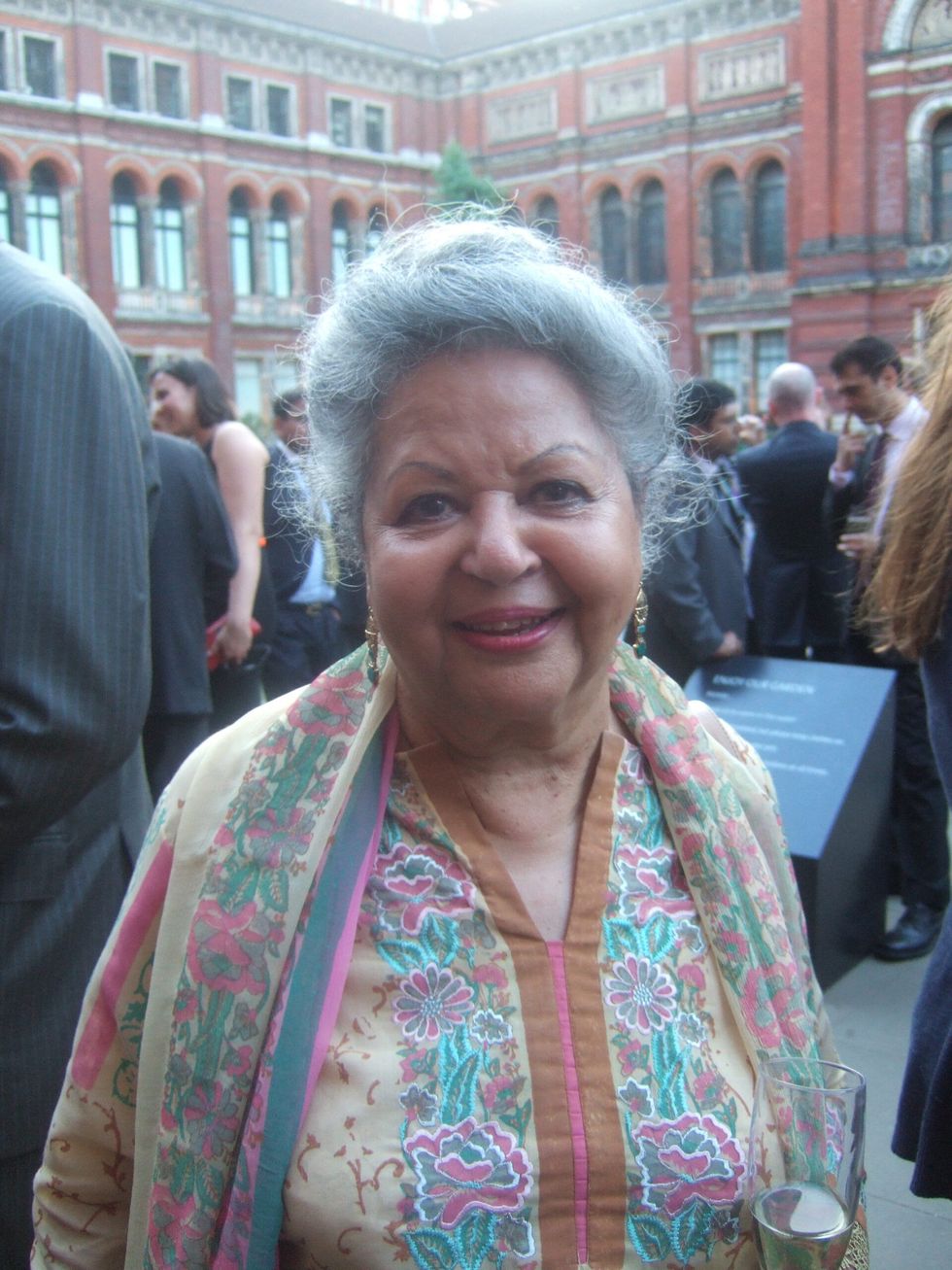
I believe two other things have damaged relationships, the first being political correctness, which seems to be growing. I think that stops people talking openly and frankly to each other. I do not mean we can insult and be rude to each other, but it is important we discuss things and talk to each other.
I value other things, but one thing that has not been mentioned, sadly, is the common law and the rule of law of this country. Which country has such a defined rule of law as this country? It is one of the greatest British institutions.
I admire the Royal Family. To me that is British. It is wonderful not to have a president but to have the Royal Family who care and who try to do their best. I admire the Church because it represents certain basic values. I am not a Christian, but I do not find my value system in conflict with the values of the Anglican Church – not the Catholic Church. All these sorts of things make it very easy for me to live in this country; it is easy to accept this country and to admire it. I think it is the best country to live in. Anyone who does not think so is wrong.
I am bicultural. I am British and I am Indian. I have an in-depth understanding of both cultures and I am all the better for it.
